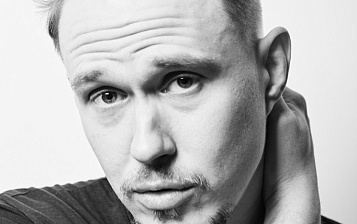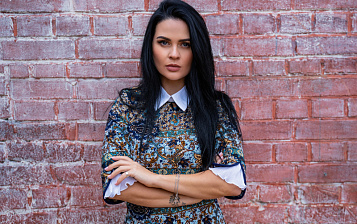Galina Karunina - psychologist ( @galishok_cipaletta )
In our country, in the minds of people, going to a psychologist is something very scary and something that is embarrassing to say out loud.
The culture of visiting such specialists in Russia is in its infancy compared to the West. This can be justified and explained by many factors that in one way or another influenced the mentality and all phases of the formation of our society.
Not everyone is ready to admit that they need help, not a friend or loved one, but a psychologist. But many do not realize that they need it. Everyone tries to appear strong, fearless, conquer new obstacles, but sometimes even a strong person needs help. There are no victories without difficulties, and even more so moral ones.
HP: How did you come to want to work with people's psychological problems? Was it a youthful interest or did you come to this at a more conscious age?
GALINA: Since childhood, my life has been connected with the psychology of people.
I always intuitively knew what to say, how to support or motivate, how to help sort out problems and not lose heart. Over the years, these abilities have become more pronounced. At the age of 19, a book by Natalia Pravdina about positive thinking fell into my hands, which made a huge impression on me, I realized how interesting and mysterious we are. Of course, I wanted to understand human psychology already from the point of view of science. Since then, I began to study psychology in its various directions, conducting my own little experiments on people. But I didn’t think of linking my life with psychology professionally until I myself needed psychological help.
HP: How are you recovering? It's very energy-consuming, and, as it seems, morally very devastating?
GALINA: I am sure that psychology itself chooses those who will serve it.
Therefore, it is unlikely that anyone who finds this type of activity difficult will remain in it. As for my experience, I can confidently say that working with people is a gift from God. I hear stories that you will not share with everyone, but they share with me, they trust me with their problems, worries, fears and believe that I can help. Of course, I'm not omnipotent, but I'm definitely the psychologist who will help, not harm. And I don’t have to recover for the simple reason that I get such a boost of energy and gratitude from people that I will be enough as a psychologist for many more years.
GP: What is energy for you and how do you restore this resource in yourself?
GALINA: Energy is the life force that helps me move forward, develop.
In order for me to have a lot of energy, I expand the energy intensity, but if I feel that my strength is running out, I restore energy through rest. In order to always have enough energy, you need to be able to save and increase your energy intensity. We preserve energy intensity through rest. Thus, our body is restored. If you neglect rest, the energy intensity becomes less, which means that the vitality will end at some point. But in order to increase energy intensity, one should constantly study new things, take advantage of opportunities, and not avoid them, not be lazy and not be afraid.
GP: Galina, despite the fact that you yourself are a psychologist, have you had to turn to one yourself? Or do you have enough inner resources to help yourself?
GALINA: Yes, there was a period in my life when I needed a psychologist.
For two years I was depressed with panic attacks. Unfortunately, psychologists failed to help me. Then I did not understand why, now, when I myself began to consult people with similar conditions, I understand that my psychologists did not have enough qualifications and, oddly enough, life experience in this direction. They theoretically understood what was happening to me, but practically not. Their consultations and assignments did not help me, as a result, they put me on antidepressants, which led to suicidal thoughts and uncontrolled aggression. At some point, I realized that I would end my life in a psychiatric clinic if I didn’t help myself, because I was disappointed in psychologists. In the end, I saved myself by reminding each time that the brain is the only organ that does not have donors. I slowly got off the pills and started my recovery journey, which led me to the fact that now 90% of my clients are people with panic attacks and burnout. I know what kind of hell they live in, and I know how to help them. But, I strongly do not recommend coping with depression and panic attacks on your own! In such a situation, the help of a specialist is needed!
GP: What do you think a good psychologist should be like? How to determine? Due to the fact that the information field is now very developed, a lot of non-professionals have divorced. If earlier it was word of mouth and it was very difficult to get to a good specialist, now the choice is huge for every taste and color. By what criteria can one understand that yes, I can turn to this person and he will really help me, and not harm me?
GALINA: A good psychologist is easy to identify - through the results of clients.
Now we live in a time when everything is as open and accessible as possible. Any of my clients can get feedback about me from another client by simply asking me for it. As a rule, people like to share good specialists with each other, and in this way they learn about you first in narrow circles, and then everyone around. I do not advertise myself as a psychologist, but the queue for my consultations is a month in advance. I do not run a professional blog and do not shout at every corner that I am a psychologist. My grateful clients do it for me. Therefore, always focus on the results, and not on how the specialist presents himself. The modern world of the Internet has taught us not to listen to everything they say and not to believe everything you see. The result is the best advertisement and recommendation. Just ask the psychologist to share your results or feedback, and you will be able to determine for yourself whether you are ready to work with him or not.
GP: Have you ever experienced a feeling of fear when taking a person into therapy? By fear is meant the inability to help, doubts, fear of harm?
GALINA: No, if I agree to advise a person, then I am confident in myself and in the result.
GP: From the previous question, the following follows: were there cases when it was necessary to refuse therapy, if so, for what reasons?
GALINA: If I am not sure that I have enough competence, then I refuse the consultation and refer me to another specialist.
Sometimes a psychiatrist is needed, such as in depression and severe anxiety disorders. I will not take responsibility for a person's life if I am not sure that I can help him.
GP: How to get to your appointment and in what format do your consultations take place?
GALINA: For the last year, my consultations have been held online, with rare exceptions, I agree to offline appointments.
At the moment, you can only sign up for me on the waiting list, since everything is already scheduled for a month in advance. Most often, they write to me on the recommendation of my former or current client, pass my phone number from hand to hand. But it happens that they find me through Instagram or are simply my subscribers who decide to get advice. Someone comes out of curiosity because they saw reviews, someone comes from a recommendation, and someone comes from hopelessness. Sometimes, I take it out of turn, but if you need urgent help, in this case there are always a couple of reserve places.
GP: What do you use in therapy? What methods and practices do you use?
GALINA: I work with thinking.
I really enjoy breaking the limiting patterns in people's minds and showing that the world is bigger than what their eyes see. I love teaching people to listen to their heart, follow it and become happy. I always use a large number of practical tasks that help to identify blocking fears, and then I help neutralize this fear and find new opportunities in life that were missed due to imposed negative and limiting attitudes. I do not use classical methods, I do not load clients with theoretical knowledge. I help to solve the problem in the most comfortable, painless and calm way.
HP: What is the most common problem people come to you with right now? What do they care about?
GALINA: Most often people come to me with relationship problems.
And it is not always only relationships with a man, woman, family or society. Most of these problems are related to communication with oneself. Unfortunately, in childhood they are rarely taught to hear themselves, their desires. We are brought up to be comfortable. We grow up and begin to face the first neurotic bells, fall into addiction or indifference, learn to survive, not live. And at some point we understand that this cannot continue. And it is at this stage that I meet a person whom I later help to allow myself to live. Do you know what phrase I hear most often after consultations? "Thank you for letting me dream (live, go my own way, be myself, etc.)!" It's always to tears. I will never get used to it!
GP: Has the number of applications increased due to the pandemic? After all, people were subjected to tremendous stress!
GALINA: I can't say that the appeals have increased, but people have become more irritable, restless and impatient.
The feeling that now some are in a hurry to live and are afraid to miss something, while others hid at home and completely paralyzed their lives. In both the first and second cases, I recommend relaxing practices. It is necessary to relieve excess stress and begin to live. There is no point in focusing on what you cannot control. You have to get used to the new rules.
GP: You have a very interesting format of therapy - neurographics, which is gaining popularity. Tell us more about it!
GALINA: I don't practice neurographics separately.
But if I can tell you about test art practices. In my consultations, I often add test art practices that help me work with the client's unconscious. Often we hide our fears and pains there, therefore, it is often difficult to immediately identify the problem. You can go to a psychologist for months, disassemble your whole life into small stories, but still not identify the cause. Or you can work with the unconscious through art testing and find out the cause of the problems. For the client, this is the most comfortable way, and for me the most informative. For example, I can ask to draw a storm and the sky, where I will find out how a person behaves in conflict situations. I can ask you to draw the inhabitants of the dungeon and then I will understand what pains my client is hiding.
GP: You run online marathons and this is a very unusual and unusual format for such a direction as psychology! What is the essence of such a marathon, let's say, the component and what results can be achieved?
GALINA: Yes, I am the author of several psychology marathons.
In fact, psychological marathons are a fairly popular and effective group consultation format. All my marathons are aimed at self-development, but each has its own theme. So, for example, the marathon "I am!" was created specifically for women who forgot about themselves and gave their lives to serve others, but did not experience pleasure from this. There is a VinAdel Marathon, which is about guilt and blaming, where I teach responsibility. There is a marathon "Feel yourself!", which teaches self-love. In addition, there are several more marathons that have also proved to be successful. Initially, I created a marathon because it was fashionable, but not yet as common as it is now, and then I realized that this is a great tool to help several dozen people at once. At my marathons, people fulfill their dreams, learn to love themselves and those around them, put up with their parents and stop suppressing children, they come to understand who an adult is and why responsibility for his life is solely on him. My marathons surprised me with the results, even me. Very soon, the marathon, which we created with my fitness trainer, for full girls will start. We will help them lose weight through sports, nutrition and psychological support. And by the New Year, another magical marathon will be launched, which I will also not lead alone.
GP: You are not only a psychologist, but you are also a professional artist, a member of prestigious art unions! Is there any professional connection to this? Or is drawing more for the soul, for yourself?
GALINA: Yes, I am also an artist.
Painting is my childhood dream. I allowed myself to become an artist at the age of 30. Painting is the result of the work done on oneself. Imagine that all your life you dreamed of being a ballerina, but worked as an accountant. Years passed and at some point you decide to give up everything for the sake of your dreams! Painting pulled me out of depression, it inspired me to a new, happy life. I am extremely grateful to her! And, of course, painting and psychology are interconnected. Through painting I can express people, charge and inspire. Every time I hear from my clients that it was not they who chose the painting, but their painting. Both painting and psychology help me serve people.
HP: You've finished your book, congratulations! It's a lot of work and I think it's an interesting experience! What is your book about and who will benefit from it?
GALINA: The book is finished, but editing is still going on.
I really look forward to when it will finally appear in the hands of readers. Writing a book is a huge experience, I quit and started it several times, got angry and inspired, frustrated and felt like a genius. Unforgettably! My book will be useful to everyone, as it contains a large number of practical tasks, performing which you can independently work on a particular problem. My book will help to cope with fears, doubts and lack of faith in oneself, my book will be useful for those who cannot dream and those who dream in vain, my book will be useful for those who are desperate or disappointed in themselves, those who are in eternal search himself and those who have found themselves, but do not know what to do with it. My book is designed to help and inspire, motivate and energize. It is a pity that no one wrote this book at the time when I needed it!
Photo: Ekaterina Akulovskaya


 DOWNLOAD
DOWNLOAD LOOK
LOOK
 Top Content of the Month
Top Content of the Month


